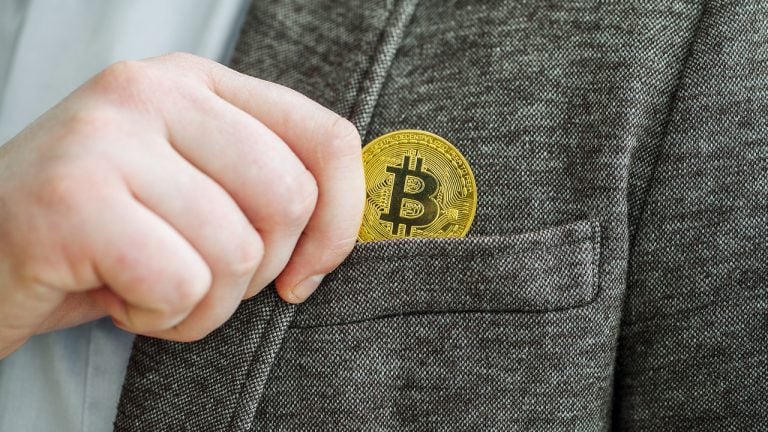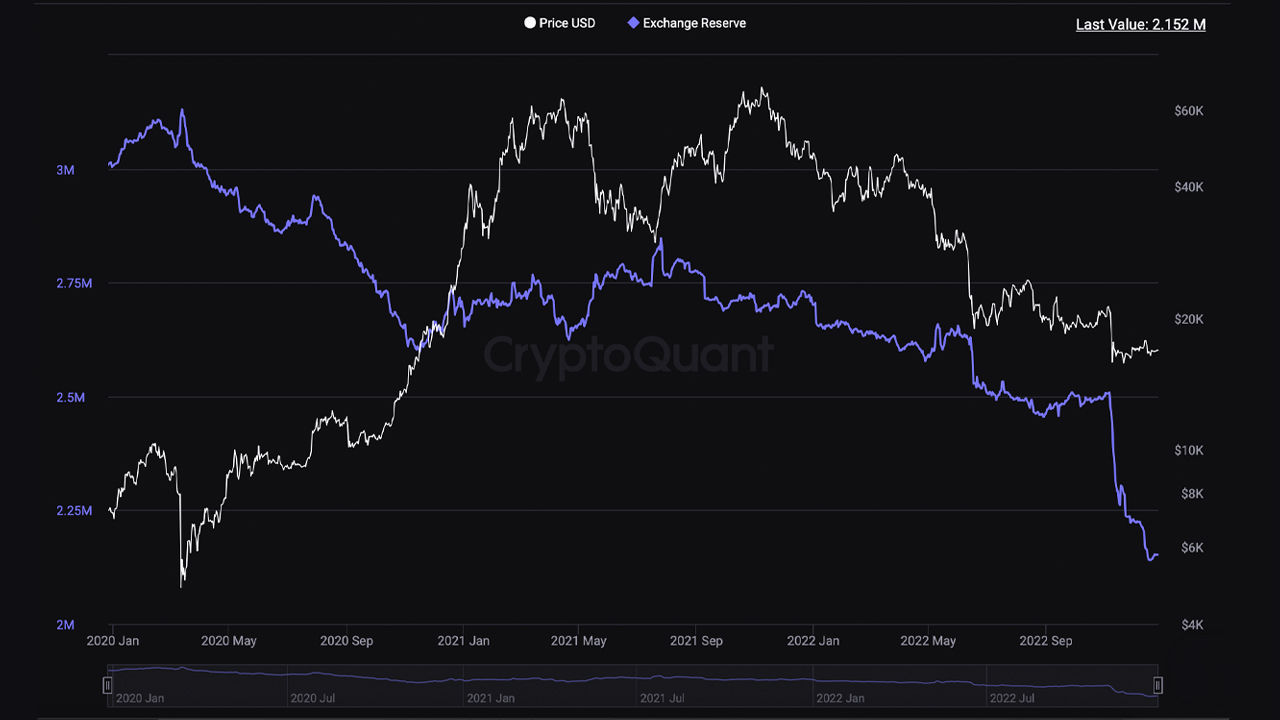
For more than 50 days or since Nov. 5, 2022, bitcoin, ethereum, and stablecoin owners removed roughly $19.19 billion in crypto assets from centralized exchanges. Between Nov. 5 to Dec. 26, roughly 356,848 bitcoin and 4.48 million ether were withdrawn from a myriad of crypto trading platforms worldwide.
$6 Billion in Bitcoin, Over $5 Billion in Ether, and More Than $7 Billion in Stablecoin Assets Were Removed From Centralized Exchanges in 51 Days
Since the onset of FTX’s collapse on Nov. 5, 2022, a great number of bitcoin (BTC) and ethereum (ETH) have left exchanges. Statistics from cryptoquant.com indicate that since that day 51 days ago, 356,848 BTC worth $6.02 billion, using current bitcoin exchange rates, has been removed. The near two-month span was the largest number of bitcoin and ethereum withdrawals all year.

Currently, on Dec. 26, 2022, cryptoquant.com metrics show there’s 2,151,925 BTC held on centralized exchanges. 51 days ago on Nov. 5, around 2,508,773 bitcoin were sitting on crypto trading platforms. On that day, there was roughly 22,528,626 ether held on centralized exchanges and today there’s 4.48 million fewer as exchanges currently hold 18,045,150 ETH.
Using current BTC and ETH exchange rates indicates around $11.53 billion was removed from trading platforms. In addition to BTC and ETH a large sum of stablecoins was withdrawn from exchanges as well over the last 51 days. Just days before FTX collapsed there was $35.20 billion in stablecoins like USDC and USDT held on trading platforms.
Since then, however, $7.669 billion worth of stablecoin assets has been removed. Although, the withdrawals have slowed down a great deal since Dec. 20, 2022, and BTC deposits have increased. Onchain statistics further show that bitcoin exchange outflows tapped their lowest levels since June 2022. Ethereum (ETH) withdrawals slowed on Dec. 20 as well, but haven’t really increased much. However, stablecoin withdrawals continue.
In conjunction with the great number of withdrawals that took place in close to two months, the crypto economy’s value was around $1.06 trillion on Nov. 5 and since then, it’s down more than $246 billion at $815.56 billion. 51 days ago, BTC was changing hands for $21,351.98 per unit, while ETH at the time was trading for $1,649.88 per unit. In tandem with the BTC, ETH, and stablecoin withdrawals, top-ten crypto assets like BNB, XRP, DOGE, and ADA also saw significant withdrawals since Nov. 5.
What do you think about the bitcoin, ethereum, and stablecoins withdrawn from crypto exchanges over the last 51 days? Let us know what you think about this subject in the comments section below.
from Bitcoin News https://ift.tt/3DM8YBF
Comments
Post a Comment